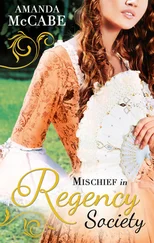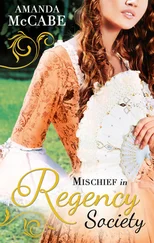L. Meade - Hollyhock - A Spirit of Mischief
Здесь есть возможность читать онлайн «L. Meade - Hollyhock - A Spirit of Mischief» — ознакомительный отрывок электронной книги совершенно бесплатно, а после прочтения отрывка купить полную версию. В некоторых случаях можно слушать аудио, скачать через торрент в формате fb2 и присутствует краткое содержание. Жанр: foreign_prose, foreign_children, на английском языке. Описание произведения, (предисловие) а так же отзывы посетителей доступны на портале библиотеки ЛибКат.
- Название:Hollyhock: A Spirit of Mischief
- Автор:
- Жанр:
- Год:неизвестен
- ISBN:нет данных
- Рейтинг книги:3 / 5. Голосов: 1
-
Избранное:Добавить в избранное
- Отзывы:
-
Ваша оценка:
- 60
- 1
- 2
- 3
- 4
- 5
Hollyhock: A Spirit of Mischief: краткое содержание, описание и аннотация
Предлагаем к чтению аннотацию, описание, краткое содержание или предисловие (зависит от того, что написал сам автор книги «Hollyhock: A Spirit of Mischief»). Если вы не нашли необходимую информацию о книге — напишите в комментариях, мы постараемся отыскать её.
Hollyhock: A Spirit of Mischief — читать онлайн ознакомительный отрывок
Ниже представлен текст книги, разбитый по страницам. Система сохранения места последней прочитанной страницы, позволяет с удобством читать онлайн бесплатно книгу «Hollyhock: A Spirit of Mischief», без необходимости каждый раз заново искать на чём Вы остановились. Поставьте закладку, и сможете в любой момент перейти на страницу, на которой закончили чтение.
Интервал:
Закладка:
Miss Delacour was, however, the sort of person who held her soul in great patience. After Jasmine had left her she stood and looked out of the window, observed the lake on which those silly little girls were rowing, noticed those absurd boys who were called after precious stones, forsooth! and made up her mind to be pleasant with Cecilia and her family, and to say nothing of her designs to her brother-in-law until the children had gone to bed. She presumed at least that they went to bed early. A little creature like Dorothy ought to be in her warm nest not later than half-past seven. Lucy and Margaret might be permitted to sit up till nine. Afterwards she, Miss Delacour, could have a good talk with George Lennox. She invariably spoke of him as George Lennox, ignoring the Honourable, for she had no respect for the semblance of a title.
By opening her window very wide, she was able to get a distant glimpse of the much-neglected Palace. She observed, with approval, the vast size of the house, the abundance of trees, the glass-houses, the hothouses, the remains of ancient splendour. Then she looked at the lake, which shone and gleamed in all its summer glory; but she turned her thoughts from the sad history of that lake. She was not a woman to romance over things. She was a woman to go straight forward in a matter-of-fact, downright fashion.
Happening to meet one of the girls at an hour between tea and dinner, she inquired at what time their father dined.
'We all dine at half-past seven,' replied Hollyhock.
'You all dine at half-past seven? How old are you, Jacqueline?'
'Nearly thirteen, Auntie Agnes,' replied the girl, tossing her black mane of lovely, thick hair.
'And do you mean to tell me that little Dorothy, who cannot be more than eight or nine years old, takes her last heavy meal at half-past seven in the evening? Such folly is really past believing.'
'Auntie, you must believe it, for wee Delphy always dines with the rest of us. And why shouldn't she?'
'Now, my dear child, as to your father's strange conduct, it is not my place to speak of it before his unhappy and ill-bred child, but I have one request to make. It is this – that you do not again in my presence call your sister by that sickening name.'
'But, auntie, we think it a very lovely name. We like our flower names so much. Auntie, I do wish that you'd go. We were so happy without you, auntie. Do go and leave us in peace.'
'You certainly are the most impertinent little girl I ever met in my life; but times, thank the good God, are changing.'
'Are they? How, may I ask?' inquired Hollyhock.
'That I am not going to tell you quite yet, but changing they are.'
'And I say they are not ,' repeated Hollyhock with great zeal.
'Oh! what a bad, wicked little girl you are! What an awful trial to my poor brother-in-law!'
'And I say I 'm not. I say that I 'm the joy of his life, the poor dear! Auntie, you 'd best not try me too far.'
'May God grant me patience,' muttered Miss Delacour under her breath.
She went upstairs to the room where her sister had not died, and made up her mind that as, of course, this wild family would not know anything whatsoever of dressing for dinner, she need not trouble to change her clothes. That being the case, she need not ring for the objectionable young person called Magsie. 'Such a name for a maid!' thought Miss Delacour. 'I'll just wear my old brown dress; it will save the dresses which I have to keep for proper occasions in London. Dear, dear, what an awful house this is!'
She sank into a chair, saying to herself how much, how very much, Mrs Macintyre would have to thank her for by-and-by! She looked at the watch she wore in a leather wristlet, and decided that she might rest for at least a quarter of an hour. She was really tired as well as appalled at the state of things at The Garden. Presently, however, seated in her easy-chair – and a very easy and comfortable chair it was – she observed that all her trunks had been unpacked; not only unpacked, but removed bodily from the large apartment. She felt a sense of anger. That girl, Magsie, had taken a liberty in unpacking her trunks. She should not have done so without asking permission. It is true that she herself had left the keys of the said trunks on her dressing-table, for most maids did unpack for her, but that was no excuse for such a creature as Magsie.
Just then there came a tap at her door. She was beginning to feel drowsy and comfortable, and said, in a cross voice, for she preened herself on her French, ' Entrez! '
Magsie had never heard ' Entrez ' before, but concluded that it was the strange woman's way of saying, 'Come in.' She accordingly entered, carrying a large brass can of boiling water.
'It has come to the bile, miss,' remarked Magsie, as she entered the room, 'but ye can cool it down wi' cold water.'
'Thank you. You can leave it,' said Miss Delacour.
'What dress would ye be likin' to array yerself in?' asked Magsie.
'I'm not going to dress for dinner.'
'Not goin' to dress for dinner! But the master, he dresses like most people i' the evenin', and the young leddies and gentlemen and Mrs Constable, they sit down at the table – ah, weel! as them as is accustomed to respec' their station in life. I was thinkin', miss, that your purple gown, which I have put away in the big cupboard, might do for to-night. Ye 're a well-formed woman, miss – out in the back, out in the front – and I jalouse all your bones are covered. It 'll look queer your not dressin' – more particular when every one else does.'
'I never heard of anything quite so ridiculous,' said Miss Delacour; 'but as those silly children are going to dress, I suppose I had better put on the gown which I call my thistle gown. The thistle is the emblem of Scotland. I suppose you know that, Margaret?'
'No me,' said Margaret. 'It's an ugly, prickly thing, is a thistle.'
'Well, you have learnt something from me to-night. You ought to be very glad when I instruct you, Margaret.'
'I 'd rather be called Magsie,' returned Margaret.
'I intend to call you just what I please.'
'Very weel, miss; but may I make bold to ask which is the thistle gown?'
'It is a rich, white silk, patterned over with thistles of the natural colour of the emblem of Scotland. Open the wardrobe and I shall show it to you. But you took a liberty when you unpacked my clothes without asking my permission, Margaret.'
'Leeberty – did I? I thocht ye'd be pleased, bein' an auld leddy, no less; but catch me doin' it again. Ay, but this thistle gown is gran', to be sure.'
'Can you dress hair?' inquired Miss Delacour.
'Naething special,' was Magsie's answer. 'Is it a wig ye wear or no? It looks gey unnatural, sae I tak' it to be a wig; but if it's yer ain hair, I beg yer humble pardon. There's nae harm dune in makin' the remark.'
'You are a very impertinent girl; but as my dress happens to fasten behind, and the people in this house are all foolish, I suppose I had better get you to help me. No, my hair is my own. You must make it look as well as you can. Do you understand back-combing?'
'Lawk a mercy, ma'am! I never heard tell o' such a thing; and speakin' o' my master and his family as fules is beyond a'. However, Miss Jasmine, the darlin', she comes to me and she says in her coaxin' way, "Mak' the auld leddy comfy, Magsie;" and I 'd risk mony a danger to please Miss Jasmine.'
'There isn't any Miss Jasmine. Her name is Lucy.'
'Ah, weel, ma'am, ca' the bonnie lass what ye like. Now stand up and let me at ye. That's the gown. My word! thae thistles are fine. Hoots! ye needna mind wearin' that gown, auld as ye be. The thistle 'll do its part.'
'I do wish, girl, you'd atop talking,' said Miss Delacour, and Magsie of the black hair and black eyes and glowing complexion glanced at her new mistress and thought it prudent to obey.
Читать дальшеИнтервал:
Закладка:
Похожие книги на «Hollyhock: A Spirit of Mischief»
Представляем Вашему вниманию похожие книги на «Hollyhock: A Spirit of Mischief» списком для выбора. Мы отобрали схожую по названию и смыслу литературу в надежде предоставить читателям больше вариантов отыскать новые, интересные, ещё непрочитанные произведения.
Обсуждение, отзывы о книге «Hollyhock: A Spirit of Mischief» и просто собственные мнения читателей. Оставьте ваши комментарии, напишите, что Вы думаете о произведении, его смысле или главных героях. Укажите что конкретно понравилось, а что нет, и почему Вы так считаете.












